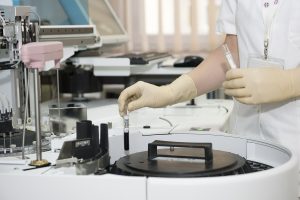[toc]
Vitamin D blood tests
Experts and scientists consider a general vitamin D supplementation as reasonable, necessary, and safe. However, before, during, and after vitamin D supplementation blood levels of vitamin D should be tested, to make sure your value is in the right range.
“Before, during, and after vitamin D supplementation
your vitamin D blood levels should be tested”
A vitamin D blood test can be done by a qualified healthcare professional, e.g. your doctor, and costs between 20 to 60 euros.
The vitamin D blood test is based on calcidiol
Vitamin D blood tests must measure a form of vitamin D that is produced in the body. The prohormone calcidiol (25-OH-D) is the most stable vitamin D metabolite, and is the best indicator of vitamin D supply in the body.
Calcidiol is somewhat the “barometer” for laboratory diagnostic assessment of vitamin D status. It reflects both types of vitamin D that are present in supplements, animal vitamin D3 (cholecalciferol) and plant vitamin D2 (ergocalciferol).
“Calcidiol blood testing is the “barometer”
for your vitamin D supply”
So whenever I talk about vitamin D blood testing, I actually mean the laboratory diagnostic assessment of the prohormone calcidiol (25-OH-D) in the blood.
Vitamin D blood testing
The actual level of vitamin D in the blood should be tested before vitamin D supplementation, because taking a vitamin D supplement only makes sense if your vitamin D level is not sufficient.
“Taking a vitamin D supplement only makes sense
if your vitamin D level is not sufficient”
Keep in mind that according to experts in the field, the target blood level vitamin D should be preferably between 75-150 nmol/L (30-60 ng/ml) calcidiol (25-OH-D). That means that after vitamin D supplementation the vitamin D blood level should be in this range.
“The target blood level after vitamin D supplementation
should be in the range of 75-150 nmol/L”



Leave A Comment